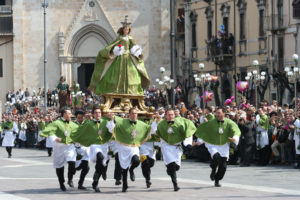No man is born into the world whose work is not born with him.
– James Russell Lowell, poetUltimately, we all have to decide for ourselves what constitutes failure. But the world is quite eager to give you a set of criteria if you let it. [F]ailure means a stripping away of the inessential. I stopped pretending to myself to be anything other than what I was, and began to direct all my energy into finishing the only work that mattered to me. Had I really succeeded at anything else, I might never have found the determination to succeed in the one arena where I believe I truly belonged. [R]ock bottom became the solid foundation on which I built my life.
– J.K. Rowling, Harvard commencement address
Work is often seen as a miserable burden. It can be stressful, soul-destroying and, at worst, suicide-inducing. When I was admitted to court as a solicitor, the presiding judge spent half her welcome speech advising us not to become so consumed by work as to neglect simple things like walking the dog, breaks from work which can preserve mental health. However, the sad thing is that in the modern workplace, humans are often treated as machines and pressured to keep producing more and more. The thing is, machines too need breaks before they break down. Even God took a rest after His splendid work of creation! In Israel, the ultra-orthodox Jews are careful not to do even a smidgen of work on the Sabbath Day, for fear of placing themselves above God. They hire Gentiles to work the elevator buttons.
Work is in fact a gift from God, a loving invitation to participate in His ongoing work of creation and salvation. The word “salvation” comes from the Latin salus, meaning “health”. When work is performed well, it contributes to the health of the individual and of society. It gives us purpose and joy when we are able to create useful and beautiful things, establish order in the world around us, serve others, and provide for those who depend on us. As a child gains confidence and matures when entrusted with responsibility for housework, so do we mature as persons when granted opportunities for productive work, growing in likeness to God our Father and building His kingdom.

Yet, in today’s post-industrial society, work is rife with pitfalls. Some jobs are stressful because they now demand so much multi-tasking as to obscure the original point of the job – one thinks of teaching, where in some places teachers are now expected to perform as social workers and substitute parents, while taking on more administrative tasks as well. Others are disheartening because they involve a single repetitive, mundane task, as in factory work. A friend of mine who works in a carrot factory during summer breaks shared how he yearns for meaningful work which employs his intellectual gifts, not deadening tasks which make him feel like a mere cog in a machine.
Some people shy away from work, while others idolize work and its proceeds, seeing work or the acquisition of money as their sole purpose in life. As Australia has a welfare system, some people subsist on the dole, turning down jobs – this is borne out by a factory-owner I know, who often has people asking him for work, only to make excuses and disappear after a day or two, having fulfilled their quota of job applications. My boyfriend just started work picking strawberries at a farm, which wants to employ Australians, but is manned mainly by Asian workers because the Australians tend to vanish after a few weeks. At the other extreme, my carrot-picking friend related how a Taiwanese worker griped about having Sundays off, because he wanted to make more money to spend on gambling. Both extremes demonstrate a lack of virtue, succumbing to either sloth or greed. Virtue is found in a healthy appreciation of honest work, while not mistaking it as one’s entire reason for existence.
Work is an essential part of human life, building character, bringing us into connection with others, and keeping our societies functioning. At a disability support training workshop which I attended yesterday, the presenter noted that we usually identify people with their occupations, because their work shapes who they are. As a mother of a disabled son, she knew how important work is for the human being, and helped her non-verbal son start a fruit and veg distribution business. Now when he goes out for walks, his customers greet him, and he feels a sense of pride in his work, besides having gained a certain status in society.
When one has worked well and is then able to disengage from work, one is better able to appreciate periods of rest and leisure. I have found that while searching for full-time employment, it is difficult for me to simply relax and enjoy a good book, because of the worry that comes with having something important undone. However, whether one is employed or not, all circumstances are opportunities to trust in God, offering Him the uncertainty of this transient life, at peace in knowing that whatever state one is in, one finds true rest and purpose in Him Who is Love, the source and end of our being.
Our stories are all stories of searching. We search for a good self to be and for good work to do. We search to become human in a world that tempts us always to be less than human or looks to us to be more. We search to love and to be loved. And in a world where it is often hard to believe in much of anything, we search to believe in something holy and beautiful and life-transcending that will give meaning and purpose to the lives we live.
– Frederick BuechnerWe must not drift away from the humble works, because these are the works nobody will do. It is never too small. We are so small we look at things in a small way. But God, being Almighty, sees everything great. Therefore, even if you write a letter for a blind man or you just go sit and listen, or you take the mail for him, or you visit somebody or bring a flower to somebody—small things—or wash clothes for somebody, or clean the house. Very humble work, that is where you and I must be. For there are many people who can do big things. But there are very few people who will do the small things.
– Mother Teresa of Calcutta, Love: A Fruit Always in SeasonLet those who think their work has no value recognise that by fulfilling their insignificant tasks out of love for God, those tasks assume supernatural worth. The aged who bear the taunts of the young, the sick crucified to their beds, the street cleaner and the garbage collector, the chorus girl who never had a line, the unemployed carpenter – all these will be enthroned above dictators, presidents, kings, and Cardinals if a greater love of God inspires their humbler tasks than inspires those who play nobler roles with less love.
– Venerable Archbishop Fulton SheenAll work is holy. Through it we walk the royal road of Christ.
– Servant of God Catherine Doherty, “The Holiness of Work“




